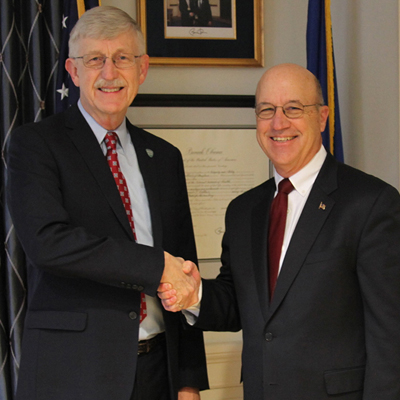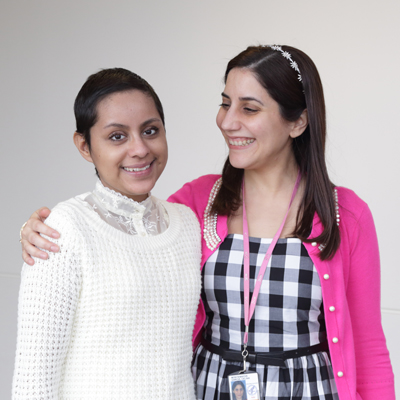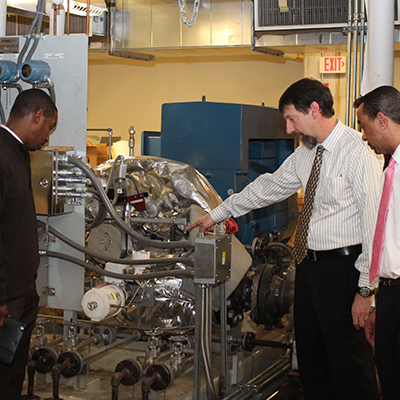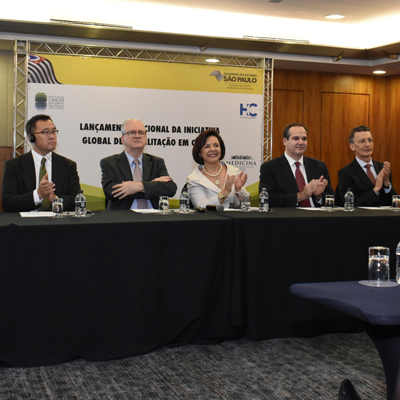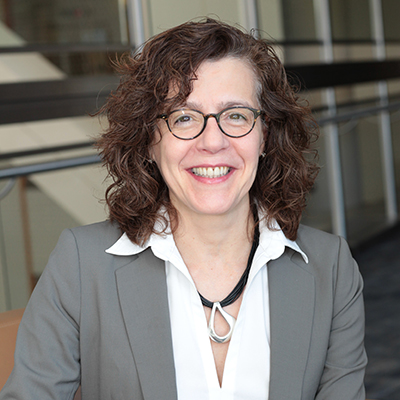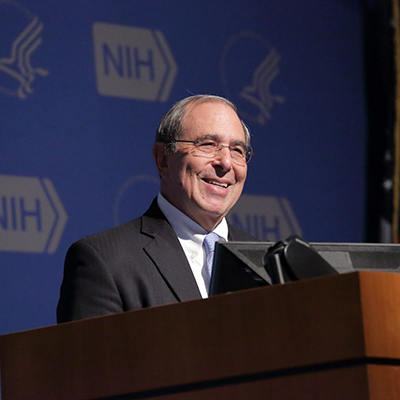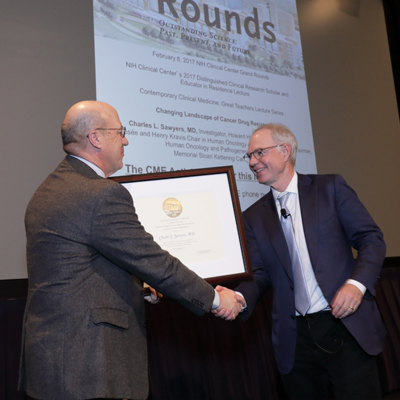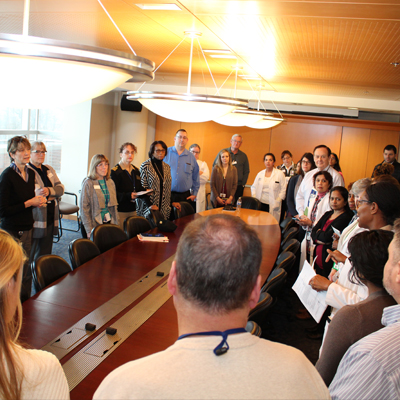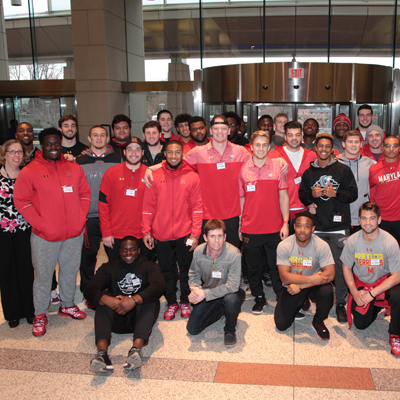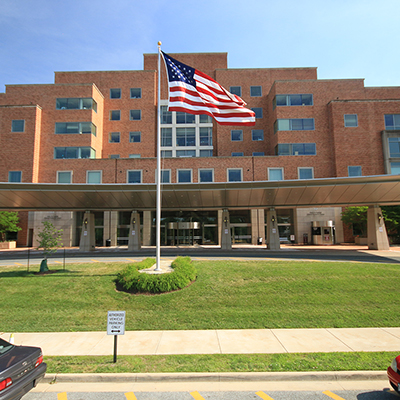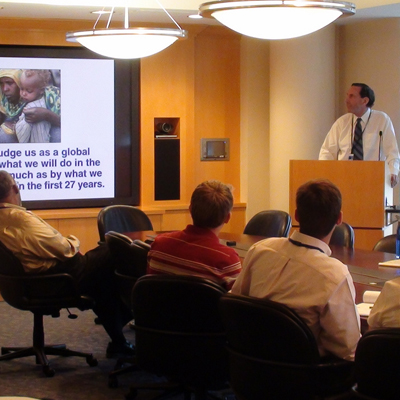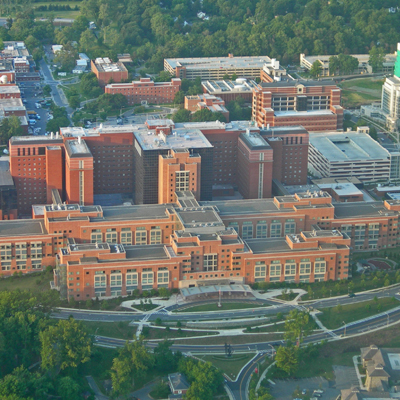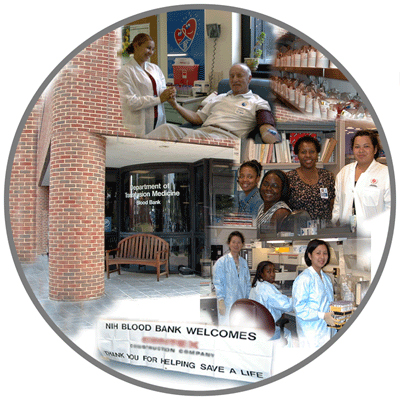Oncology care plan for cancer survivors discussed in Malaysia, Brazil
By the year 2026, the American Cancer Society projects that the number of U.S. cancer survivors may exceed 20 million. As survivors travel home after treatment, they are faced with the opportunity to consider what's next in their lives, but many also face physical and psychological side effects of disease and treatment.
Dr. Leighton Chan, chief of the NIH Clinical Center's Department of Rehabilitation Medicine, along with other collaborators, published a paper in November in the Archives of Physical Medicine and Rehabilitation, highlighting the growing need in the U.S. healthcare system to meet the challenges of cancer survivors and to better alleviate or mitigate the functional impairment they may experience.
A lot of treatments around cancer, including surgery, chemotherapy and radiation, can have profound impacts on a patient such as fatigue, pain, depression and lymphedema (swelling in the arms or legs). While most of these symptoms can be treated with the help of a cancer rehabilitation professional, currently, there are not many specialists around the country who are incorporated in the oncology care plan, aside from places like Sloan Kettering, M.D. Anderson, and at the NIH Clinical Center, according to Chan.
"We've been doing cancer rehabilitation here in the Clinical Center and in this department for years. Every day, my staff sees first-hand the challenges our patients face when confronted with the long-term complications of cancer treatment. Pain, swelling, fatigue, nerve damage — we have to manage it all. Cancer rehabilitation, then, is a natural fit for our mission; it's a stubborn, challenging area with lots of area for improvement," he said. "[But, across the U.S. and the world] it's an underdeveloped branch of rehabilitation, and something we think will really take off in the future."
Chan's department, and collaborators from the National Cancer Institute and the Eunice Kennedy Shriver National Institute on Child Health and Human Development's National Center for Medical Rehabilitation Research, convened a meeting in June 2015 at NIH to elevate the state of the science in cancer rehabilitation.
Following the two-day gathering of 200 cancer care and rehabilitation experts, Chan and others compiled the paper, which provides recommendations "to stimulate action among healthcare providers, policy-making bodies, research institutions, professional societies and associations and patient advocacy organizations toward initiating advancements in the field."
The paper suggests individual providers should focus on the following:
- Providing rehabilitation screening and assessment as part of a comprehensive cancer care plan starting at the time of the cancer diagnosis
- Assessing functional status throughout the course of treatment — before, during and after intervention
- Considering 'pre-habilitation,' where possible, to help patients achieve better outcomes.
"[With this paper,] we started this national ball rolling," Chan said. And quickly, the interest in cancer rehabilitation went international.
Chan was asked to present on cancer rehabilitation at international meetings in Malaysia and Brazil in late 2016. And, he's been invited to go to China and Argentina to continue to educate healthcare providers about the importance of integration of rehabilitation medicine in oncology and early assessments by rehabilitation specialists. The Clinical Center Rehabilitation Medicine Department, along with other multidisciplinary groups, plan on creating a set of standards for physicians and therapists by spring 2017.
"If we can create a set of guidelines, then we can help create new programs throughout the United States and the world. That, to me, would be a wonderful success," said Chan who was just awarded the American Physical Therapy Association Debbra Flomenhoft Humanitarian Award for his efforts to focus attention on this underserved area.
In addition to the guidelines, continued education is needed for oncologists, patients, the research community and those involved in the financing of the services, such as the Centers for Medicare & Medicaid Services. But Chan feels hopeful that the growing interest in this area will eventually impact care and policy, and that an increasing number of cancer survivors will be able to live a more functional and fulfilling life after battling, and overcoming, disease.
"[Survivors] have a right to certain expectations around the quality of [their] life and maximizing their ability to do the things they want to do — whether that's going back to work or reengaging in their hobbies," Chan said. "In general, the oncology community is focused on mortality and disease-free survival as the primary outcome measures. But, we also know that someone's ability to function after a treatment is equally critical."

